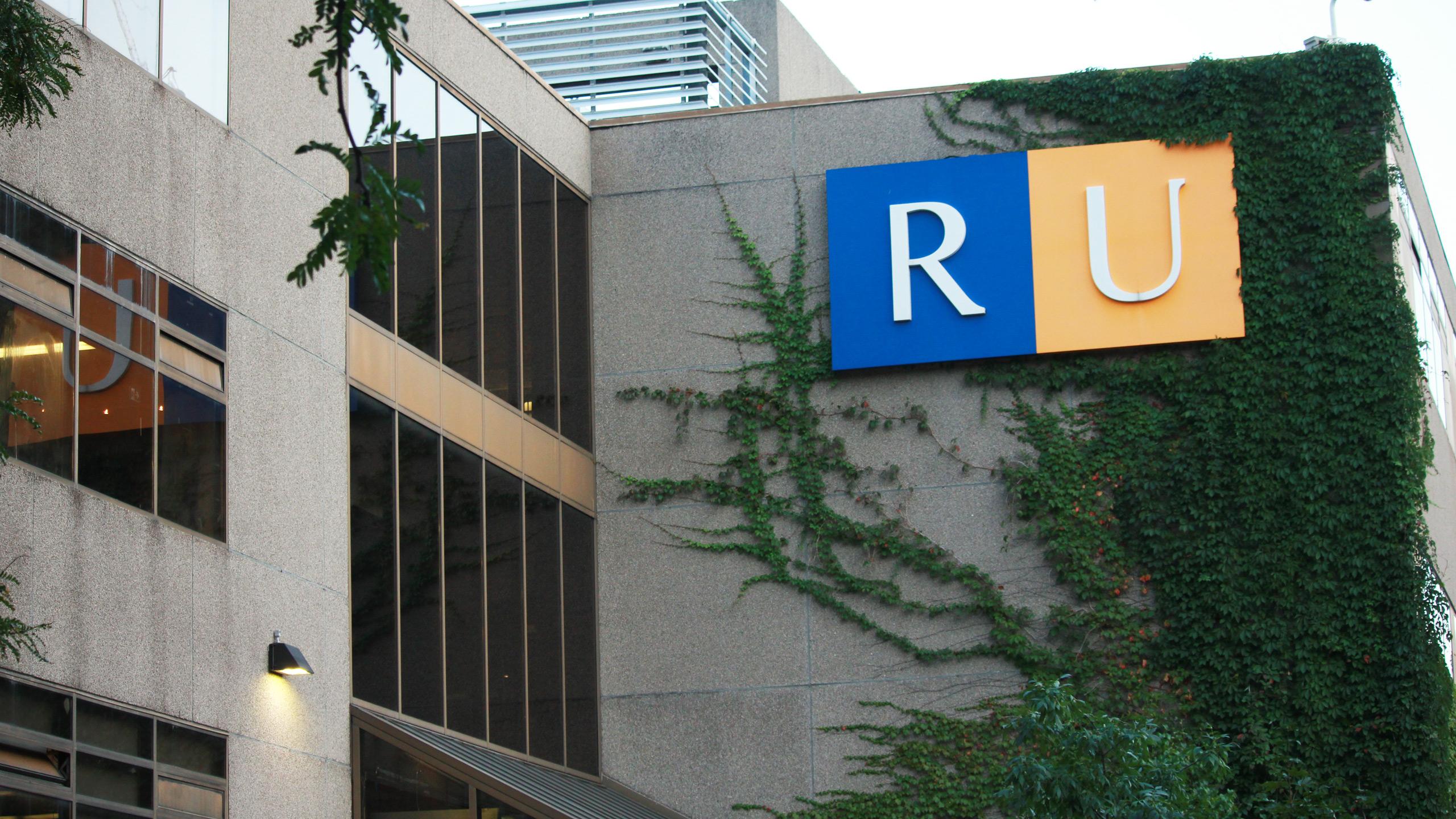By Alexandra Holyk
Tuition fees for the spring, summer and fall 2020 semesters will not be reduced, despite most classes being offered online, according to university president Mohamed Lachemi.
“While we will be learning and teaching in a different way for the fall semester…academic curriculum and outcomes will remain the same,” Lachemi said during a livestream on Wednesday. “Ryerson must always put long-term economic health as a priority. We will not be reducing tuition for the fall.”
Although fourth-year arts and contemporary studies student Abbey Humphreys-Morris said she anticipated tuition would remain the same, she wasn’t expecting the university to make the announcement the way it did.
“It seems cold and as if the university isn’t thinking of the students that they’re meant to support,” Humphreys-Morris said, adding that she’d sooner look for guidance from her program’s student society rather than Ryerson administration during this time.
Earlier this month, Lachemi released a statement announcing that the university plans to have a mix of in-person and online courses, as well as offer as many on-campus activities as possible—in accordance with public health guidelines.
But several students said they don’t think it’s fair for tuition to remain the same when many of their classes and program requirements are difficult to facilitate online. There is also a petition by a Ryerson student that is circulating asking for tuition to be reduced.
“[The university is] failing to recognize that this is not a 1:1 substitute for in-class learning, tutoring, and various other on-campus services they offer normally,” the petition’s description reads. “Ryerson is saving a large deal of money by only offering a fraction of what they normally do when they are fully operational.”
Third-year film studies student Kristen Walsh said it was difficult to move online near the end of the winter semester. She said that by not having the necessary resources and equipment available during this upcoming fall semester, curriculum will be much more challenging.
“Online, we weren’t able to emulate working [on] sets and making films as part of a full working production,” Walsh said. “Being able to use skills that our profs have taught us…has been pivotal in my learning experience and I don’t see how an online learning experience could compensate for that.”
In a letter to Charles Falzon, dean of the School of Image Arts and Faculty of Communication and Design (FCAD), 92 image arts students also requested that tuition be reduced with concerns about the fall semester. “We don’t want to be paying for empty studios, labs, and workspaces,” the letter reads. “If we are not experiencing the parts of our program that make it unique and hands-on, our tuition should be lowered to reflect that.”
“We’re learning courses online [when] they are courses that are meant to be taught in person”
Despite still paying full-price for his tuition, second-year sociology student J-Irony De Ocampo said it won’t be as easy to focus on the content being taught as it would have been in a lecture hall.
“It hinders [my motivation] completely…We’re learning courses online [when] they are courses that are meant to be taught in person.”
De Ocampo added that students continue to pay for services they aren’t using. “The fact that I’m paying the exact same amount as I did when I had full access to everything…is infuriating.”
According to Lachemi, a short-term reduction in student tuition or fees may “negatively impact the quality and the…services and support we are able to offer students now and into the future.”
For the spring and summer semesters, students said they weren’t sure as to why they were being charged for on-campus services they couldn’t use, including student buildings and athletics.
Kenchio Wang, a fourth-year international economics and finance student called the situation “an undue burden.”
“It’s not a full package, they shouldn’t charge us full price,” Wang said, adding that the university should “remove the gym fees, at least.”
“While I recognize that we are not able to access physical buildings right now…many of the services supported by fees continue to support our students remotely,” Lachemi said during the livestream. “Fees also permit the university to continue to maintain buildings during this time…so that they are safe, clean and ready to open when we are on campus together again.”
According to The Varsity, certain incidental fees for the University of Toronto’s summer 2020 semester have been lowered by up to 40 per cent. This includes athletics and recreation fees, as well as student building fees.
Other schools including the University of Manitoba and Dalhousie University will be increasing tuition fees for the fall semester by 3.75 per cent and three per cent, respectively.
A survey conducted by the Canadian Federation of Students (CFS) and the Canadian Association of University Teachers analyzed the fall semester concerns of new and returning post-secondary students. The results showed that 85 per cent of participants are reconsidering their plans for their fall semester, saying tuition reductions would be beneficial in their return to school.
Kayla Weiler, the national executive representative for CFS-Ontario said the organization plans to work with its members to have “united demands,” including a potential call for a tuition fee reduction.
“It exacerbates the issue that tuition is simply so expensive and students are not able to afford tuition in regular times, let alone during a pandemic.”
Although Ryerson has not released an official statement on tuition fees for the fall 2020 semester, Lachemi said the university will continue to provide students with updated information.
With files from Libaan Osman












Leave a Reply